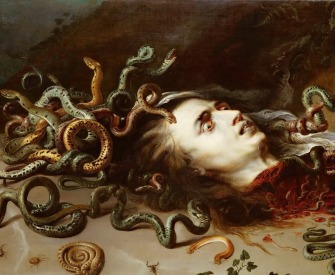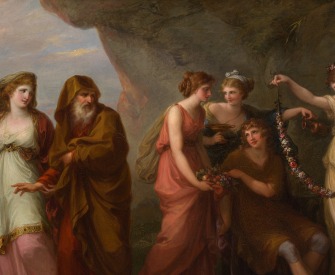
Christopher Marlowe
The Tragical History of Dr. Faustus,
c. 1592
The Tragical History of Dr. Faustus,
Faust: Was this the face that launched a thousand ships,
And burnt the topless towers of Ilium?—
Sweet Helen, make me immortal with a kiss. [kisses her]
Her lips suck forth my soul: see where it flees!—
Come, Helen, come, give me my soul again.
Here will I dwell, for heaven is in these lips,
And all is dross that is not Helena.
I will be Paris, and for love of thee,
Instead of Troy, shall Wittenberg be sacked;
And I will combat with weak Menelaus,
And wear thy colors on my plumèd crest;
Yes, I will wound Achilles in the heel,
And then return to Helen for a kiss.
O, thou art fairer than the evening air
Clad in the beauty of a thousand stars;
Brighter art thou than flaming Jupiter
When he appeared to hapless Semele;
More lovely than the monarch of the sky
In wanton Arethusa’s azured arms;
And none but thou shalt be my paramour!




